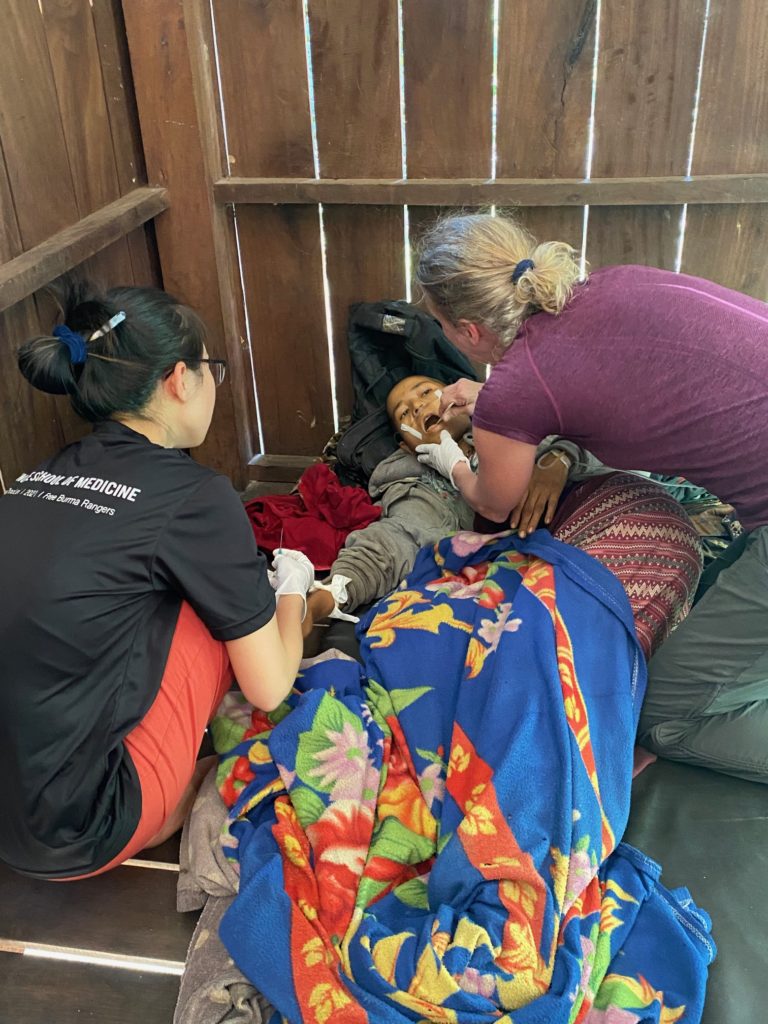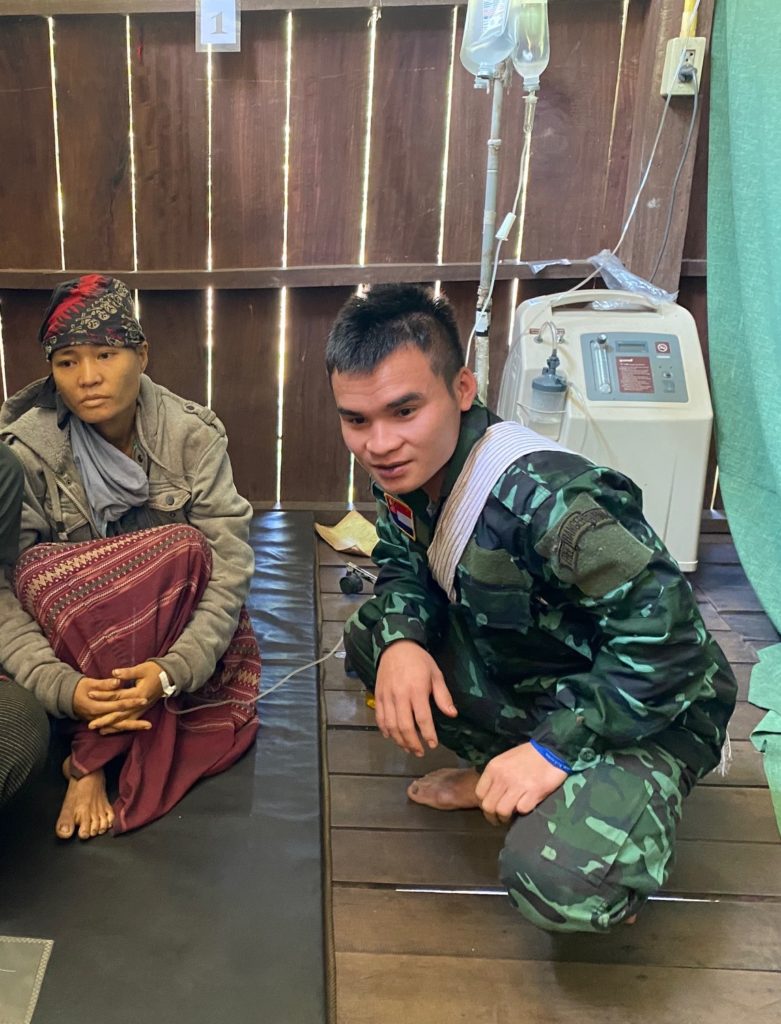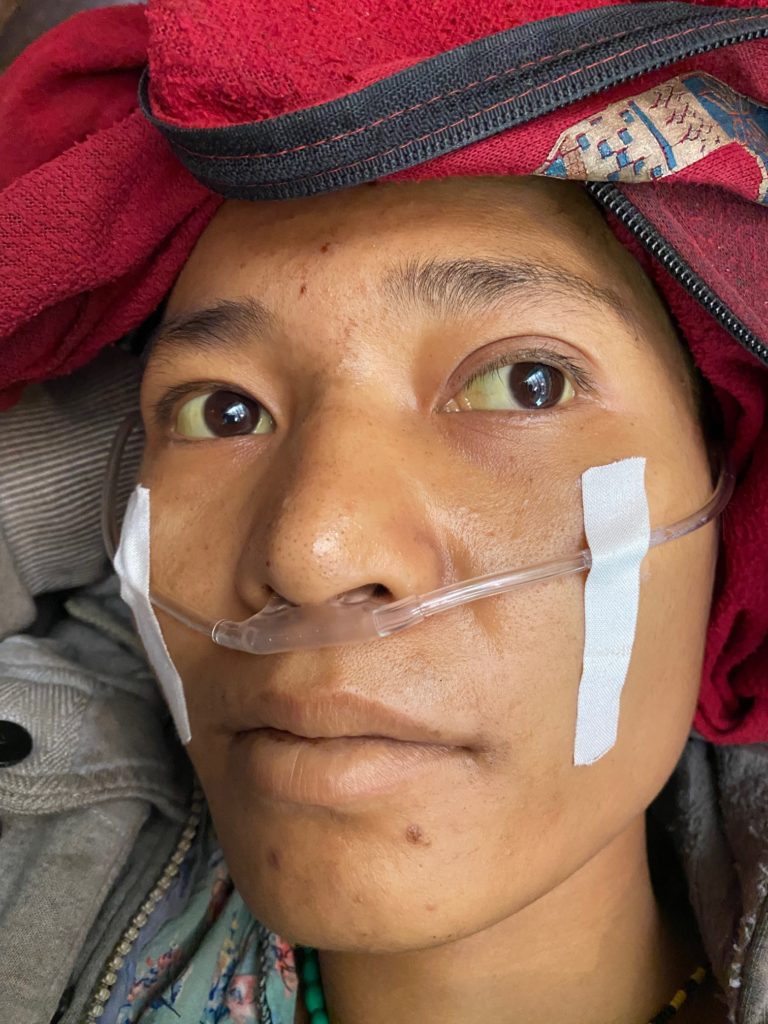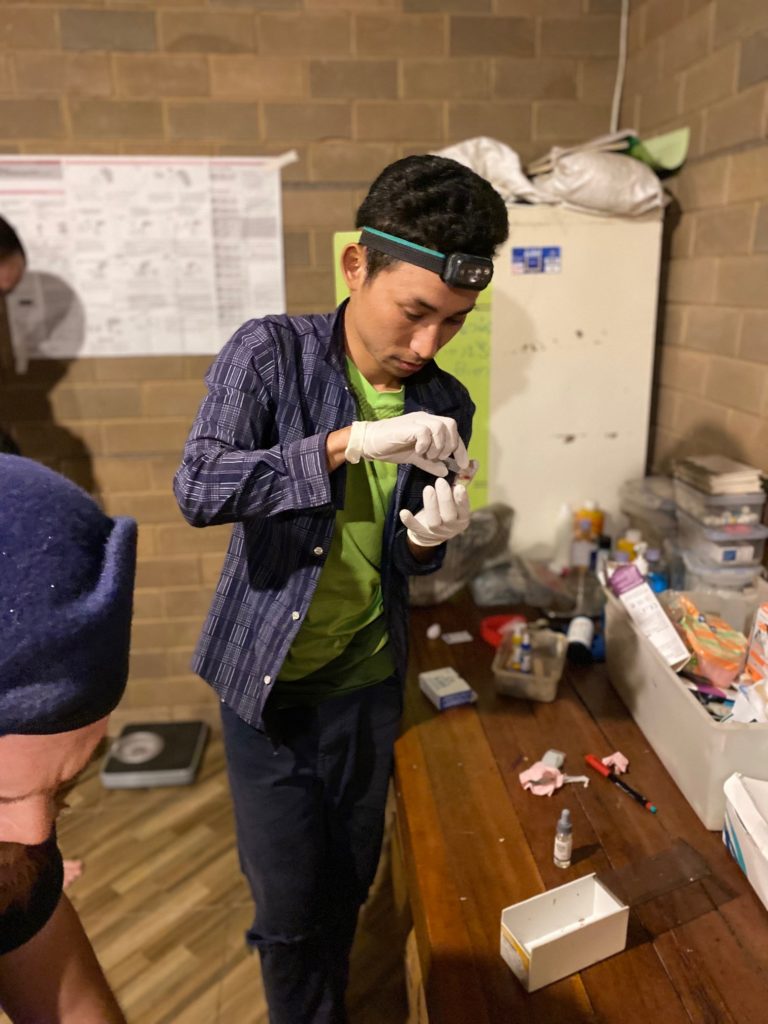JSMK Report: In Need of Blood
26 March 2023
Karen State, Burma
When it comes to straightforward, life-saving preparation in a high-risk environment, not much beats knowing everyone’s blood type and having it readily accessible. According to the National Institute of Health and U.S. Medicine, hemorrhaging is the leading cause of potentially preventable deaths on the battlefield and evidence has shown that early blood transfusion can reduce these casualties. The Jungle School of Medicine Kawthoolei (JSMK) in Karen State, Burma, does not exclusively treat battlefield casualties but with increasingly widespread Burma Army brutality across Karen State and other regions in Burma, JSMK medics are often trained and go to serve on the frontlines, where blood is commonly needed. The battlefield and need for blood, however, is not found on the frontlines alone.
Shortly after JSMK initiated blood typing for all staff and volunteers, a 27-year-old Karen woman was admitted with severe fatigue, weakness, and shortness of breath – symptoms that had been steadily worsening over four days. Her lab tests upon admission revealed a hemoglobin of 4 (a normal level is above 12) and a low blood oxygen saturation level. Her health history showed she had been recently treated for malaria with chloroquine medication elsewhere. The JSMK staff were able to make the connection and diagnosis: in southeast Asia there is a common genetic problem called G6PD deficiency which, if present, makes a patient prone to an anemia crisis resulting from red blood cells becoming fragile as a side effect of some medications, such as chloroquine. When the red blood cells break down too fast there is an acute shortage of functioning red blood cells, which carry oxygen to the body’s tissues, thus causing shortness of breath. Another common physical sign of this condition is jaundice which is often most easily seen in the eyes.
Thankfully, not long before her admission, Moo Nay, the JSMK lab director had typed the blood of those who had recently arrived in the area. One of JSMK’s medical students, Saw Htoo Genal, and one of FBR’s newest volunteers, John, both had been typed and were found to be O negative, which is the universal donor. Saw Htoo Genal, being in the hospital at the time of this patient’s admission, was the first to donate a unit of blood for this woman, and John followed suit.
A two-unit transfusion bumped her hemoglobin up several points and gave her enough oxygen-carrying capacity to breathe much more easily. She continued to improve during her hospital stay of approximately four days with supportive care and time for her own bone marrow to make new red blood cells that were not damaged and, in the end, made a full recovery.
As JSMK continues to receive patients and train medics, and as more teams are sent out on missions, the likelihood of urgent need for blood transfusion increases. At FBR headquarters, the medic supply coordinators and team have already begun working on obtaining a dog tag machine in efforts to know and clearly display everyone’s blood type as a sensible step to saving lives.


Thanks and God bless you,
Free Burma Rangers



